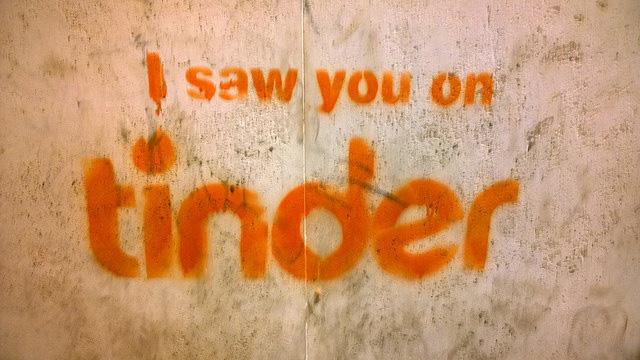Researcher wants to make rejections in online dating less painful
'Ghosting has been normalised'

Ghosting is the most common way to reject others when online dating, as evidenced in an article by Tess van der Zanden, Assistant Professor in Language and Communication, and Janneke Schokkenbroek, a scholar from Ghent, Belgium. The article was published in the journal Cyberpsychology, Behavior, and Social Networking.
“Previous studies had already shown us that people who have been ghosted are more likely to ghost others, but what surprised us the most in this study was that ghosting also happens after people have been in touch quite intensely. Ghosting has become normalised.”
The article by Schokkenbroek and Van der Zanden combines the data from two separate surveys of students. The first study shows the most common rejection methods and how they affect the ones rejected. The respondents came from the network of two Master's students and almost all of them were on Tinder.
The second study looked at the reasons why people reject others, compared to what they tell the ones rejected. First-year students found 325 respondents from their network for this study.
Even after 31 messages
The first survey presented four methods used by online daters to reject someone, namely: "ghosting" (cutting all contact all of a sudden), "unmatching" (which means someone can no longer send you any messages), and rejection by message, with or without an explanation. Respondents were asked how they were last rejected when online dating and how many messages they had exchanged before getting rejected. They could choose between less than five, 6-15, 16-30, and 31 or more.
More than 62 percent of the 177 students surveyed indicated that they were ghosted the last time they were rejected. It did not matter what stage of contact they were in, but over a third of them were ghosted after having exchanged more than 31 messages.
“Being rejected is always painful,” Van der Zanden says. According to her, ghosting is particularly painful due to the lack of explanation. That is why it keeps hurting for a while. "You are left with questions."
But explaining why you're rejecting someone is not necessarily the solution, the study shows. After all, hearing why someone doesn't want us can be even more painful. Van der Zanden believes this may be due to the longer contact that often precedes this type of rejection. In 63 percent of cases, rejections with an explanation happened after an exchange of over 31 messages. "That hurts, but the explanation provides the one rejected an opportunity for closure."
In the second study, Van der Zanden and Schokkenbroek looked at reasons for rejection in online dating. Rejected people often mention a different reason than rejecters. For example, twenty out of 68 rejecters said that "no (romantic) connection" was the reason for their last rejection, while only one out of 24 rejecters said that was the reason they were told.
“As a communication scientist, this is interesting for further research. If we can compare the actual reason and the reason given, we can learn a lot about rejecters' strategies and choices.”
Should we stop dating online?
According to Van der Zanden, this does not mean that we should stop online dating. “Online dating has many advantages. It is easier to meet people outside your bubble. Online dating is ideal for people who do not dare to approach others in real life.”
She doesn't recommend texting for too long, however. Instead, try to make things a bit more personal: “Make an appointment quickly or have a video call.”
The researcher does not think that the rejection culture will change anytime soon. "But apps can help,” she notes. “Janneke had the idea of apps sending a notification whenever there has been radio silence from someone for too long. This could make the rejection a little bit less painful.”
She also wants to do her part: “In two years, I hope we will have written guidelines for the least painful way of rejection. Dating apps can then use these guidelines for their notifications.”
Invitation
Van der Zanden hopes that this research will inspire other researchers to delve deeper into online dating. “We knew little about this topic, so we hope this will encourage further research. Especially considering the results raise interesting follow-up questions.”